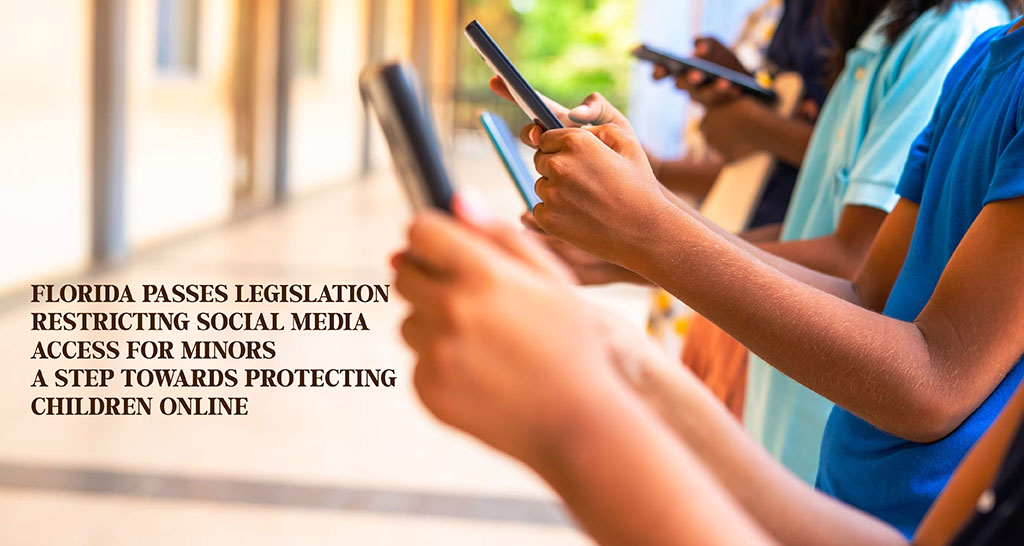Florida Governor Ron DeSantis signed into law a bill to safeguard young individuals’ mental well being. The law prohibits children under 14 from accessing social media platforms without parental permission. The new law, known as HB 3, puts restrictions on adult websites and says people have to prove how old they are to go on sites with sensitive content. This important action shows how worried people are about children’s social media usage and how it affects their mental health.
Starting on January 1, 2025, the law says children under 14 can’t use social media at all. 14 and 15-years-old will need their parents’ permission to create accounts. This decision is being made because there is increasing evidence that using social media too much can put teenagers at risk of anxiety, depression, and other mental health disorders.
Some people say that this kind of law limits our freedom to speak freely, which is protected by the First Amendment. They think that parents should make decisions regarding children’s online presence rather than the government getting involved. However, supporters say that the law provides parents with important ways to protect their children from the harmful effects of too much exposure to social media.
The amended version of the bill compromises between strict regulation and parental decisions. Initially, Florida lawmakers suggested a complete ban on social media for individuals under 16. However, Governor DeSantis opposed this bill because he was worried about parental rights. The revised legislation allows parents to grant consent for older children to engage with social media platforms. This shows a balance between protecting children and respecting parental authority.
The law does not clearly target specific social media platforms. Instead, it focuses on features considered potentially harmful. These features include endless scrolling, likes, auto-play videos, and pop-up notifications. Social media companies must use third-party verification systems to enforce age restrictions. They are also required to delete personal information from terminated accounts permanently.
Meta, the parent company of Instagram and Facebook, has opposed this new legislation. The company is worried about parental discretion and data privacy implications. However, supporters argue that this rule is fundamental to protecting children from the negative impacts of social media on their well-being. They think it is more important than any complaints from big tech companies.
Florida joins a growing number of states, including Utah, Arkansas, and Louisiana, in making legislation regulating children’s access to social media. More places are realizing the need for proactive measures to deal with digital technology’s adverse effects on youth. People are getting more worried about how social media affects mental health. Florida’s new law is a big deal because it aims to make an online environment safer for children.
The government wants to give parents more power and make rules to make social media safer for children. They hope this will keep children from facing too many problems online and make sure they stay healthy and happy.










